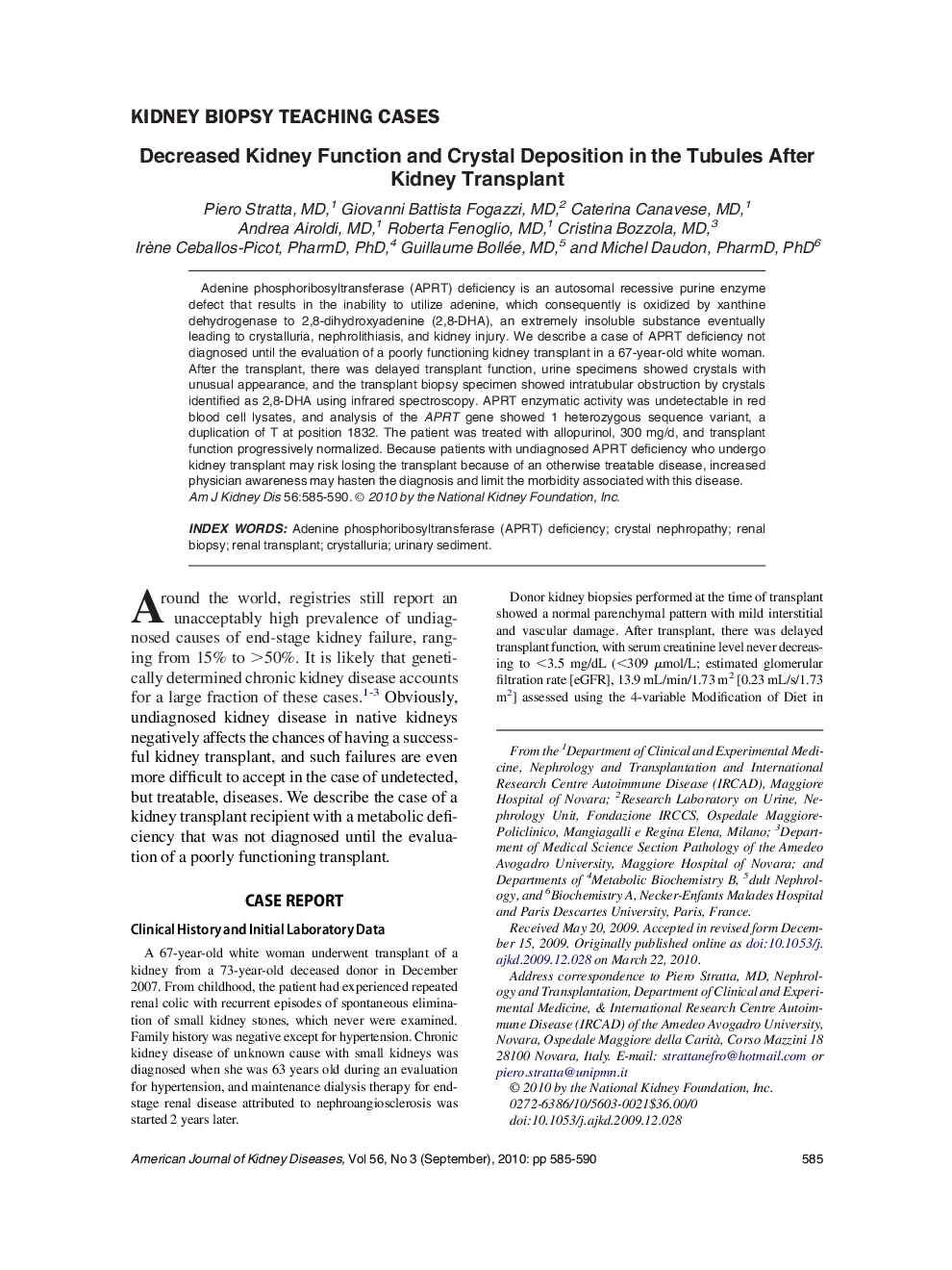| Article ID | Journal | Published Year | Pages | File Type |
|---|---|---|---|---|
| 3849250 | American Journal of Kidney Diseases | 2010 | 6 Pages |
Abstract
Adenine phosphoribosyltransferase (APRT) deficiency is an autosomal recessive purine enzyme defect that results in the inability to utilize adenine, which consequently is oxidized by xanthine dehydrogenase to 2,8-dihydroxyadenine (2,8-DHA), an extremely insoluble substance eventually leading to crystalluria, nephrolithiasis, and kidney injury. We describe a case of APRT deficiency not diagnosed until the evaluation of a poorly functioning kidney transplant in a 67-year-old white woman. After the transplant, there was delayed transplant function, urine specimens showed crystals with unusual appearance, and the transplant biopsy specimen showed intratubular obstruction by crystals identified as 2,8-DHA using infrared spectroscopy. APRT enzymatic activity was undetectable in red blood cell lysates, and analysis of the APRT gene showed 1 heterozygous sequence variant, a duplication of T at position 1832. The patient was treated with allopurinol, 300 mg/d, and transplant function progressively normalized. Because patients with undiagnosed APRT deficiency who undergo kidney transplant may risk losing the transplant because of an otherwise treatable disease, increased physician awareness may hasten the diagnosis and limit the morbidity associated with this disease.
Related Topics
Health Sciences
Medicine and Dentistry
Nephrology
Authors
Piero MD, Giovanni Battista MD, Caterina MD, Andrea MD, Roberta MD, Cristina MD, Irène PharmD, PhD, Guillaume MD, Michel PharmD, PhD,
